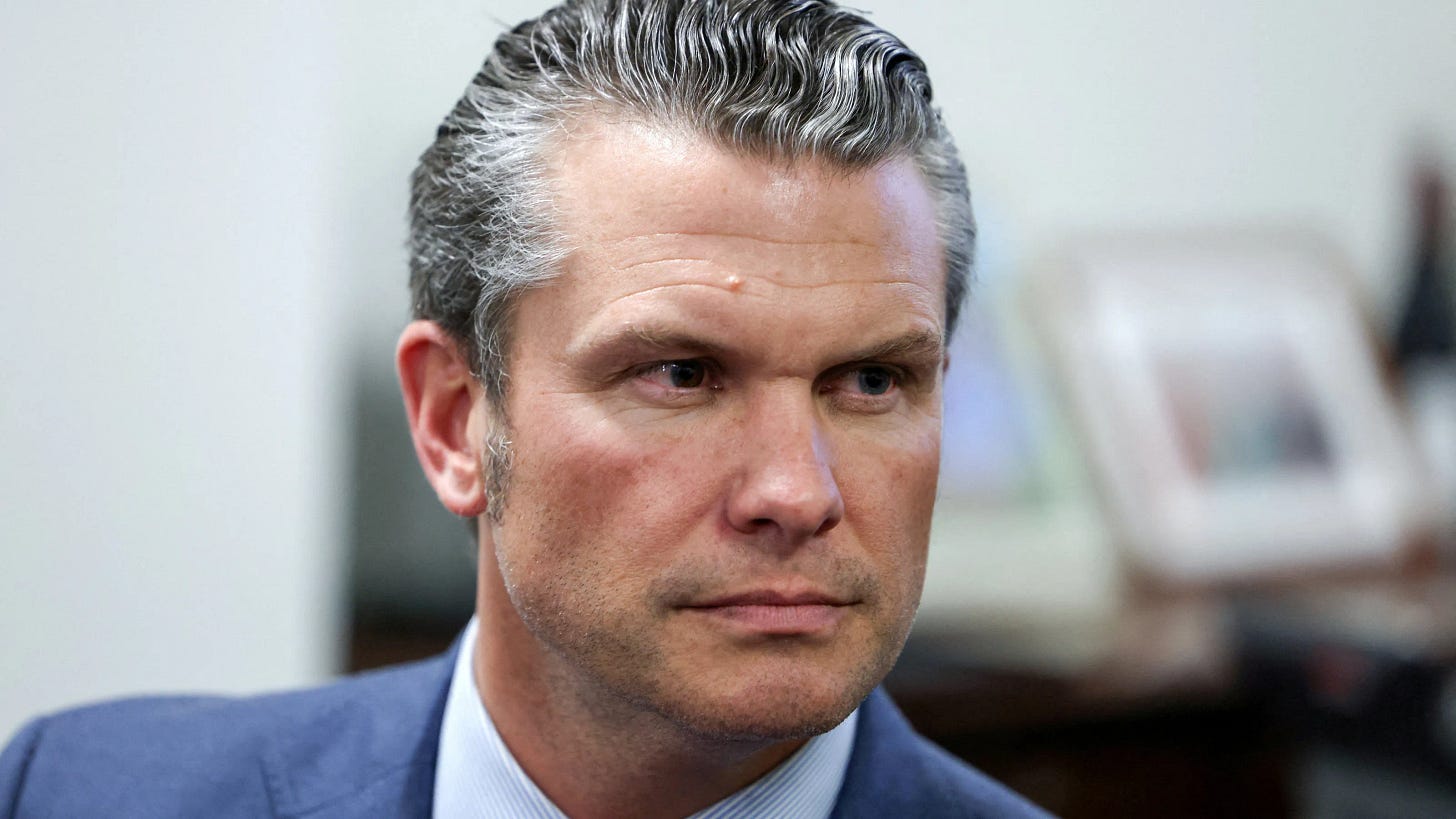Hegseth Defends Iran Strike Amid Fallout Over Leaked Intelligence Report
Defense Secretary calls media coverage "scandal hunting" as Trump doubles down on claims of a 'devastating' blow to Iran's nuclear program
Washington — Defense Secretary Pete Hegseth, flanked by senior military officials including Gen. Dan Caine, led a fiery Thursday morning press conference at the Pentagon aimed at quelling growing skepticism over the effectiveness of recent U.S. airstrikes on Iranian nuclear facilities. The move follows the leak of a preliminary Defense Intelligence Agency (DIA) report suggesting the strikes only set Iran’s nuclear program back by a few months — a finding sharply at odds with President Donald Trump’s public statements touting a “devastating” blow.
“This was a strategic victory, not a moment for nitpicking intelligence fragments,” Hegseth said, dismissing the DIA’s analysis as incomplete and “not coordinated” with other agencies. He berated the press for what he described as a “rush to scandal” and claimed reporters were ignoring broader defense achievements, including increased European NATO spending and renewed military recruitment efforts.
Trump, who monitored the press conference live, echoed Hegseth’s attacks online, falsely claiming the intelligence leak was fabricated and threatening media outlets with repercussions. “Watch it!” the president posted, before alleging — without evidence — that outlets would soon “fire the reporters who made up the FAKE stories.”
Internal Dissent, Congressional Pushback
As the administration circles the wagons around Trump’s narrative, congressional tensions are escalating. Senators are set to receive a classified briefing on the Iran strikes amid a brewing legislative clash over war powers. A resolution requiring congressional approval for any future military action against Iran is gaining bipartisan traction, with several lawmakers asserting the White House overstepped its authority.
“This is not how war powers work. The President does not have carte blanche,” said Sen. Tim Kaine (D-Va.), a longtime advocate for reining in executive military authority. Some Republicans have voiced unease as well, especially after intelligence agencies reportedly pushed back on the claim that Iran was preparing to build a nuclear weapon.
Global Ramifications and New Diplomatic Currents
The fallout comes as diplomatic overtures surface from an unexpected source. Turkish President Recep Tayyip Erdoğan announced a proposal to host peace talks involving the U.S., Russia, and Ukraine, claiming Trump expressed interest in attending — but only if Russian President Vladimir Putin does as well.
“Our ultimate goal is to build the peace we long for,” Erdoğan said, returning from the NATO summit in The Hague. While symbolic, Erdoğan’s offer has little immediate traction, with Putin declining recent invitations and sending lower-level delegates to previous negotiations.
The Bigger Picture: Health, War, and Misinformation
This week’s events expose deep fractures — not only in the administration’s handling of classified intelligence but also in how military action, healthcare cuts, and pseudoscientific inquiries into vaccines (led by RFK Jr.’s new advisory panel) are intersecting in a moment of political volatility.
As Defense Secretary Hegseth scolds reporters for doing their jobs, and as the White House wages rhetorical war against its own intelligence community, Americans are left to sort through competing realities: a commander-in-chief driven by public perception, and a defense apparatus caught in the crossfire of politics and truth.







